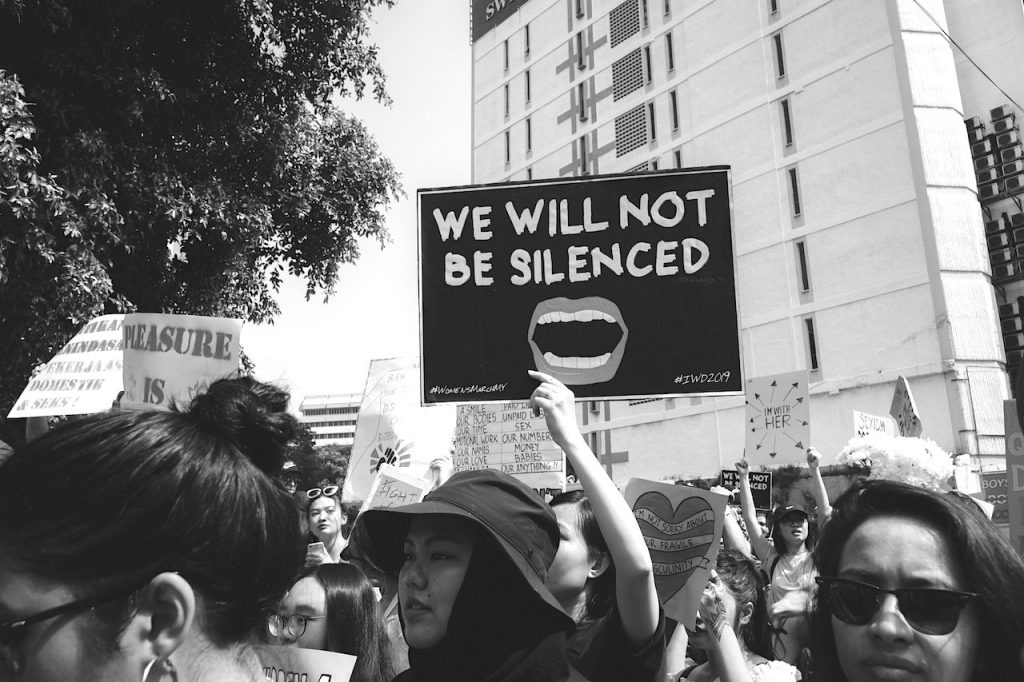Even though freedom of speech and expression is based on human rights agreements, in practice, freedom of speech is limited everywhere.
One of the core tasks for advancing freedom of speech is prohibiting censorship. The purpose of censorship is to change or stifle acts, thoughts or publications, which are seen as repulsive, harmful, politically unwanted or, for example, contrary to the interests of state officials.
Censorship can be divided into preliminary censorship and post-publication, punitive censorship.
Preliminary censorship is the check of vocal, literary or visual presentations, the passing of which is a condition for the public presentation and circulation of the publication.
Punitive censorships sum up all the negative consequences that a citizen or a journalist may face when talking about or reporting on a certain topic. Worldwide, these include a wide range of consequences, from mild ones such as getting negative feedback, to graver ones such as imprisonment and even death.
The purpose of censorship is to change or stifle acts, thoughts or publications, which are seen as repulsive, harmful, politically unwanted or, for example, contrary to the interests of state officials.
Making the work of journalists harder is one of the means of censorship. Documenting and reporting these abuses against journalists and citizen journalists are among the core tasks of Reporters Without Borders (RSF).
Since 2002, RSF has been publishing the World Press Freedom Index. This index is a ranking list of 180 countries in which the national freedom of the press has been researched and analysed through a questionnaire and local correspondents.
The index is a points-based system where every country receives a comparison score between 0 and 100. The score is calculated by separately assessing the multivocality and diversity of values within the media, independence of the media, self-censorship, legislation, openness, transparency and media infrastructure.
Additionally, the score takes into account the violence that journalists have been subjected to, which is counted as the numbers of deaths, imprisonments, detainments and the number of journalists who have been exiled.
The top positions tend to be occupied by the Nordic countries Finland, Norway, Sweden and Denmark whilst, at the other end of the scale, from 2013 to 2019 the index has ranked Palestine at 132-146 out of 180 and Israel at 87-112.
Even though, as a continent, Europe is still in the lead, the rights of journalists are far from ideal even there. Reports have paid attention to, for example, the insufficient protection that the law provides in France for the sources of journalists.
Limiting the press not only affects professional journalists, but also the public.
In one of the leading countries, Finland, the index has been paying attention to the centralisation of media ownership, which is an internationally common trend of development. Television corporations, radio stations, papers, etc. have grouped into large media conglomerates, where many different media outlets function under the same roof.
The index is a point of reference that is quoted by media throughout the world and is used by diplomats and international entities such as the United Nations and World Bank. Because it is well known, its influence over governments is growing.
Limiting the press not only affects professional journalists, but also the public, who cannot receive critical and independent knowledge through newspapers, radio or television. The internet is also constantly the object of espionage and surveillance.
An example of self-censorship would be the reluctance to express thoughts that could be considered touchy by the government, or which could get the journalists into trouble.
Limiting freedom of speech is also often a tool of political power. One of the countries whose position has most significantly dropped is the United States, whose ranking has fallen to 41–49 for the last five years, but which still held 20th place as late as 2010. This fall was first largely caused by the efforts made by the US government to track people who have leaked politically sensitive information, but the US position has been kept low largely due to direct attacks on the media by President Donald Trump.
In self-censorship, journalists limit their actions themselves. An example of self-censorship would be the reluctance to express thoughts that could be considered touchy by the government, or which could get the journalists into trouble. A wider definition of self-censorship is limiting one’s own actions or statements in order to avoid offending or irritating, for example, a government.
Are there limits for freedom of expression?
Article 19 of the Universal Declaration of Human Rights states the following: “Everyone has the right to freedom of opinion and expression; this right includes freedom to hold opinions without interference and to seek, receive and impart information and ideas through any media and regardless of frontiers.”
Reflection:
Can you come up with situations where freedom of opinion or expression should be limited?
Keep Reading:
Censorship and self-censorship in Palestine; Discrimination and equality and the work of journalists
Go back to the beginning of this section.
This article was updated on January 20th 2020.




